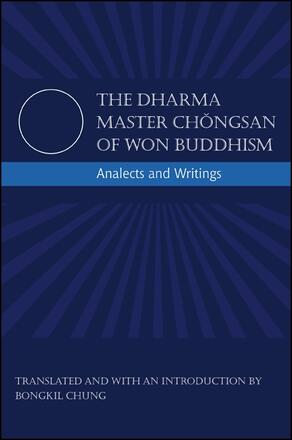
The Dharma Master Chǒngsan of Won Buddhism
Analects and Writings
Alternative formats available from:
The first English translations of the writings of Chŏngsan (1900-62), who codified the central doctrines of Won Buddhism.
Description
Won Buddhism emerged in early twentieth-century Korea after a long period of anti-Buddhist repression. It is a syncretic tradition, a form of Buddhism strongly influenced by the Chŏson dynasty's Neo-Confucian ethical heritage and by Daoism. Seeking to deliver sentient beings from suffering and to create a just and ethical world, Won Buddhism stresses practical application of the dharma and service. It offers a vision of people as one family, morally perfected.
This book provides the first English translations of the writings of Chŏngsan (1900–62), the second dharma master of Won Buddhism, who codified the new religion's central doctrines. The translations here include Chŏngsan's discussion of Buddha-nature, described as a mind-seal and symbolized by the Irwŏnsang (a unitary circle); his synthesis of Confucian moral and political programs with Buddhist notions of emancipation from birth and death; and his expositions on realizing the ideal of all people as one family.
Bongkil Chung is Professor Emeritus of Philosophy at Florida International University. His books include The Scriptures of Won Buddhism: A Translation of the Wŏnbulgyo Kyojŏn with Introduction and An Introduction to Won Buddhism.
Reviews
"The introductory chapter offers a succinct overview of the history and, more particularly, the main themes of Chŏngsan's systematizing teachings. The translation itself is carefully crafted and impresses by its engaging and accessible style. This work is an important contribution and a 'must-read' for everyone interested in East Asian Buddhism and Korean religions." — Religious Studies Review
"Chung's book is an important addition to the small existing oeuvre on the Won Buddhist tradition of Korea. This is an elegant, accessible, and carefully annotated translation of a seminal work." — Robert Buswell, editor of Religions of Korea in Practice